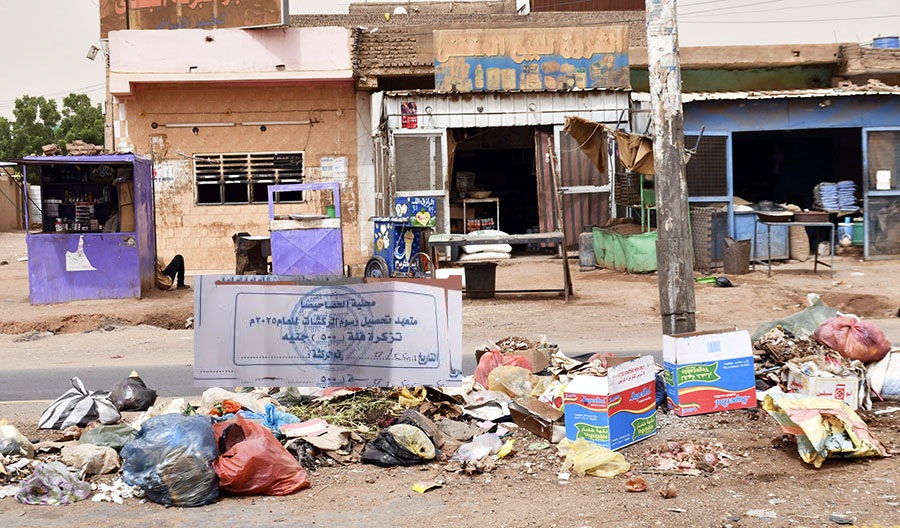
Reconstruction... Between Doubling Taxes and Drying Out Revenues
Abdel Nasser Fadl
Citizens protests in front of local government offices in the Triangle Capital, rejecting exorbitant taxes and the harshness of their collection, have become a constant daily phenomenon in all local governments that have opened their doors, not to expedite services and encourage citizens to return, but rather to expand the scope of tax collections and empty the remaining funds in merchant coffers.
Local government and revenue-generating and service institutions have returned to work, and employees, workers, and hard-line tax collectors have been summoned to begin tax collection and fine-imposition campaigns. This has been done with complete and deliberate disregard for the effects of the war and its repercussions on commercial activity and market activity in general, and with complete disregard for what this damned war has done to citizens, including the looting of wealth, the destruction of property, and the liquidation of savings.
Revenue-generating institutions and local governments have begun operating in markets and shopping centers with an activity, precision, and strictness unsuited to the conditions of trade and merchants.
Government institutions, particularly in the national capital, have begun the first steps toward returning to work and recruiting staff for their daily routines. They are maintaining buildings, repairing vehicles, and preparing tools for revenue-generating work and daily collections. All of this, and more, is dependent on the pocket money of merchants and their meager revenues.
There is no clear plan to provide the funds and costs of rebuilding government buildings, other than revenues and taxes from the stricken businesses and destroyed merchants.
The capitals triangular markets are witnessing a timid surge of activity, with a small number of merchants returning to practice their profession from point zero. Everyone expected to find support, even if it meant exempting their shops from government collection receipts until the treasuries were replenished with financial revenues. However, without warning, precaution, or even grace periods, collection receipts spread like wildfire among the limited number of shops that have resumed activity, hoping to recoup their lost savings and the money and goods stolen by the "shafshafa" (scavengers).
Citizens are optimistic as shops begin to open their doors to the public. There are many shortages that citizens need and are seeking to fill to compensate for a small portion of the wars looting and the legendary and most widespread plundering in human history. However, with the pressure of taxes and the large number of government receipts, many shops will abandon the idea of rebuilding the local market and wait for a more favorable time.
In front of every closed shop, there is a receipt book ready, waiting for the shop owner to resume activity. Every merchant awaits a collector who has returned to work after an absence of two and a half years, with a collection ceiling to be deposited into the local treasury. All this is happening in the face of a stagnation in buying and selling activity in the markets and a drying up of revenues that do not merit the frenzied government activity.

